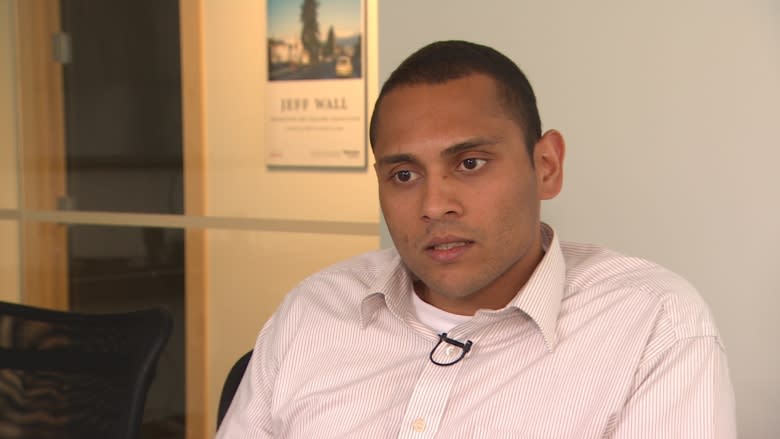Credit card companies suing customers for payment
Canadian credit card companies are "scaring customers to pay up" in an aggressive new tactic to collect outstanding debts from customers, says B.C. man Sukhpaul Badyal.
The Burnaby electrician says his credit rating was destroyed when ATB Financial claimed he owed $6,900 on his Husky MasterCard, and took him to B.C. Supreme Court to collect.
"It was a scare tactic," says Badyal, who received a notice of civil claim filed in B.C. Supreme Court from the financial institution that issued the card.
But Badyal had proof he was the victim of fraud and the balance owing was the result of 91 suspicious overseas transactions with an online gaming company.
"They figure the little man will get scared to go to Supreme Court, and I didn't even flinch. I said, 'You wanna go to court, let's go to court,'" says Badyal.
Credit revoked, contracts lost
Badyal says his credit rating also cost him several contracts because other lenders revoked his credit.
He says many of the fraudulent transactions occurred while he was at work on a construction site and did not come from his IP address, but ATB Financial did not believe him, causing three years of stress and aggravation.
Badyal fought the lawsuit with the help of Access Pro Bono, a non-profit agency that provides free legal services in Vancouver.
In court documents, he claimed the bank's lawsuit against him was an "abuse of process," because small claims court usually has jurisdiction over matters under $25,000.
He also argued the bank was unfair to him by filing the lawsuit, then delaying the case for many months while he was being charged 19.9 per cent interest on the outstanding balance.
A B.C. Supreme Court judge threw out the case and ordered the credit card company to pay Badyal $598.04.
"I stuck to my guns, I didn't give in," says Badyal, encouraging others not to be intimidated by legal action.
Bank now reviewing case
Husky Energy says its credit card is managed by the Alberta Treasury Branches, which is a financial institution and Crown corporation owned by the Alberta government
In a statement, ATB Financial says the handling of Badyal's case is being reviewed.
"In this case, the process has left no one involved particularly pleased. We will review with our team and our agent the decisions made in this matter."
The bank has since removed the negative rating on Badyal's credit report.
'Terrible abuse of the system'
"It does seem like a terrible abuse of the system. It does seem like the big guy stomping on the little guy," said Priyan Samarakoone, a lawyer with Access Pro Bono who has represented several credit card customers facing similar lawsuits.
"More often than not people don't respond to the claim, and when they don't respond they get a default judgment against them, which can result in a lien against your home, which could lead to foreclosure."
Customers may not have means to respond
Elaine Walker, a cattle rancher in Dawson Creek, B.C., made the mistake of ignoring a notice of civil claim from Capital One Bank and nearly lost her mobile home over a $7,000 debt.
"All of a sudden I got this letter in the mail saying they were taking me to court," says Walker.
The 54-year-old says she ran into financial difficulty when beef prices collapsed due to the mad cow disease crisis.
"I didn't have a clue what to do … 'cause I didn't know what that was," she says of the lawsuit that gave her just 21 days to file a response. She failed to attend a hearing in B.C. Supreme Court in New Westminster, because it's a 14-hour drive from her home in northern B.C.
Judgment issued against rancher
"What concerns me is opposing counsel did not care that she was in Dawson Creek and had no means to get to New Westminster or hire counsel," says Samarakoone.
Walker says Capitol One had the court issue a judgment against her in her absence.
"They were trying to have the judgment debt [placed as a lien] against the home," Samarkoone said.
"They were threatening to sell my home, my land," says Walker, angry she had to use her 72-year-old husband's retirement money to pay the debt. The bank reduced the amount owed by $1,000.
In a statement to CBC News, Capital One says taking legal action against a customer is a last resort, but in Walker's case it had no other option.
"We are required to take this approach because the remedies to resolve the issue are not available through small claims court," reads the brief statement.
Capital One says Walker could have arranged to appear in New Westminster Supreme Court by phone.
CBC Investigates
If you have more information on this or related stories, email investigate@cbc.ca




